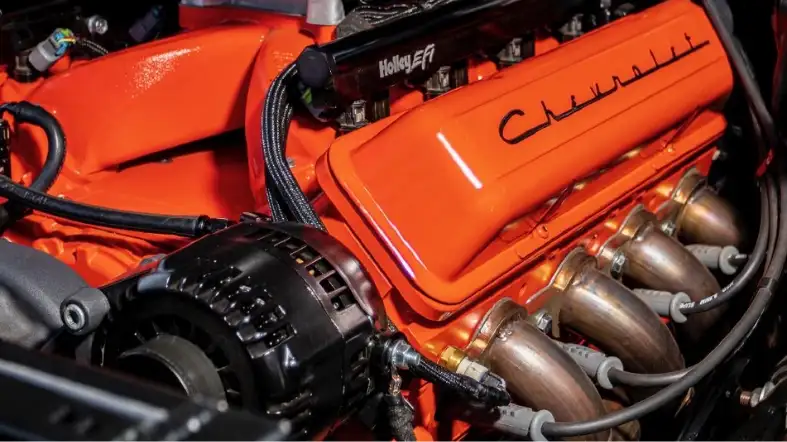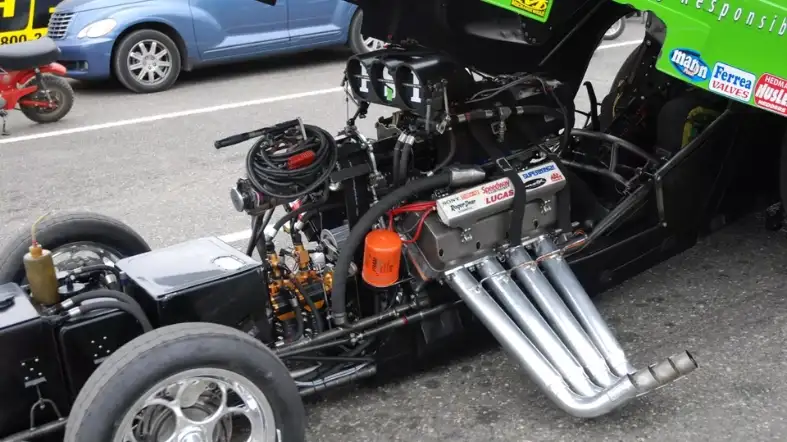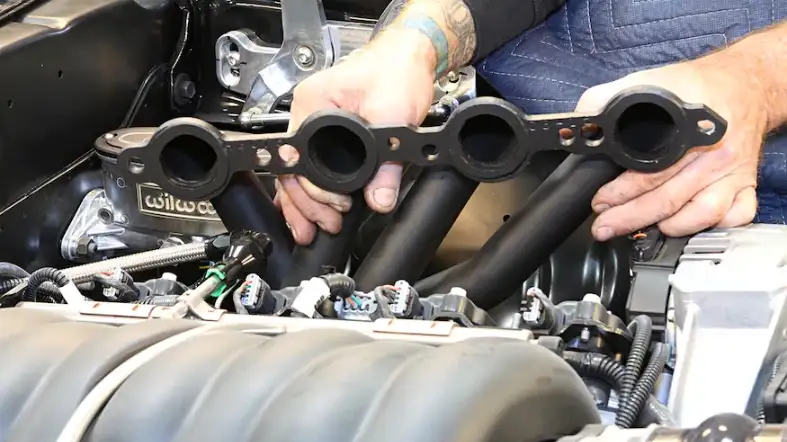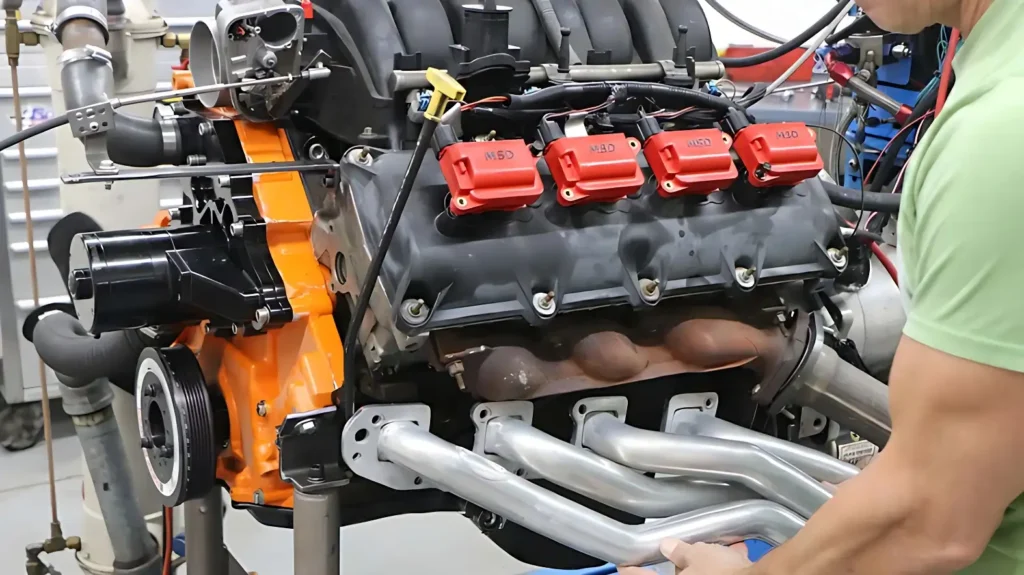Upgrading headers and tuning are two popular methods to increase horsepower in a vehicle.
Headers replace the restrictive stock exhaust manifold while tuning adjusts the engine’s performance settings.
The combination of headers and tuning can result in significant horsepower gains.
The actual amount of horsepower added can vary depending on several factors.
In this article, we will explore how much horsepower headers and tuning can add to your vehicle and what factors influence their performance.
How much horsepower do headers and tuning add together?
Headers and tuning add anywhere from 10 to 30 horsepower to a vehicle, depending on various factors such as the engine’s size and condition, the quality of the headers, and the expertise of the tuner.

How much horsepower do headers add?
Headers add anywhere from 5 to 20 horsepower to a vehicle, depending on various factors such as the engine’s size and condition, the quality of the headers, and other considerations to the vehicle.
How much horsepower does tuning add?
Tuning can add anywhere from 5 to 25 horsepower to a vehicle, depending on various factors such as the engine’s size and condition, the quality of the tuning, and the other identifications of the vehicle.
Take a look at this table on how much horsepower headers and tuning add together
| Type of Vehicle | Average Horsepower Gain with Headers | Average Horsepower Gain with Tuning | Total Average Horsepower Gain with Headers and Tuning |
|---|---|---|---|
| 4-cylinder | 5-10 horsepower | 5-15 horsepower | 10-25 horsepower |
| 6-cylinder | 10-15 horsepower | 10-20 horsepower | 20-35 horsepower |
| 8-cylinder | 15-20 horsepower | 15-25 horsepower | 30-45 horsepower |
Do headers and tuning affect other aspects of engine performance?

Yes, headers and tuning can affect other aspects of engine performance, including
Increased Exhaust Flow:
Headers can improve the flow of exhaust gases out of the engine, which can improve overall engine efficiency.
This led to increased horsepower and torque, and improved throttle response.
Improved exhaust flow can help to reduce engine heat and increase engine longevity.
Improved Throttle Response:
Tuning can improve the response of the throttle by adjusting the air/fuel ratio and ignition timing.
This can result in a smoother, more responsive engine that is easier to control.
The improved throttle response can help to reduce turbo lag in turbocharged engines, resulting in better acceleration.
Better Fuel Economy:
Headers and tuning can help to optimize the air/fuel ratio, which can result in better fuel economy.
By adjusting the air/fuel ratio to the ideal level, the engine can burn fuel more efficiently, resulting in improved fuel economy.
Any significant increase in horsepower will likely come at the cost of decreased fuel economy.
Increased Engine Sound:
Headers can give the engine a more aggressive sound by increasing the volume and tone of the exhaust note.
This can be desirable for some drivers but may be less desirable for those looking for a quieter ride.
Engine Longevity:
Headers can help to reduce engine heat by improving exhaust flow and reducing back pressure.
This can result in lower operating temperatures and less wear and tear on the engine over time.
Tuning can help to optimize the air/fuel ratio, which can result in less stress on the engine and improved longevity.
Can headers and tuning cause any problems for the engine?

Headers and tuning done properly should not cause any problems for the engine.
If not installed or tuned correctly, they can potentially cause issues such as reduced fuel efficiency, engine misfires, or damage to the engine components.
Poorly installed headers:
If headers are not installed properly, exhaust leaks can occur.
These leaks can lead to decreased engine performance, as well as increased engine noise.
Exhaust leaks can cause hot gases to be released into the engine bay, potentially causing damage to other engine components.
Incorrect tuning:
When tuning an engine, it’s important to choose the right parameters to optimize performance.
If the tuning is incorrect, it can cause a range of problems, including decreased fuel economy, increased emissions, and potential engine damage.
Tuning must be done with care and precision to avoid these issues.
Mismatched components:
Headers and tuning must be chosen carefully to match the specific make and model of the engine.
Using components that are not designed for the engine can lead to poor performance, engine damage, and potential safety hazards.
Overheating:
Headers can potentially cause the engine to run hotter than usual. This can lead to decreased performance and potential engine damage if not addressed.
Monitoring engine temperatures are important after installing headers and adjusting cooling systems if necessary.
Legal issues:
Depending on where you live, certain modifications to an engine may not be legal.
Headers and tuning can potentially put you at risk of violating emissions regulations or other laws.
Research and understands the laws in your area before making any modifications to your engine.
How Much Does It Cost To Install Headers And Tuning?

Here are some factors to consider when calculating the cost of installing headers and tuning:
Research and purchase the appropriate headers:
Start by researching and selecting the right headers for your vehicle.
This will depend on the identification of your car, as well as your performance goals. Headers range from around $100 to $1,000 or more.
Gather necessary tools:
You’ll need a variety of tools to install headers, including a socket set, wrenches, pliers, and jack stands.
Raise the car and remove the old exhaust headers:
Use a jack and jack stands to lift the car and safely secure it.
Then, remove the old exhaust headers, which will likely require the use of a wrench or socket set.
Install the new headers:
Carefully install the new headers according to the manufacturer’s instructions. This may involve using gaskets, bolts, and other hardware.
Reconnect the exhaust system:
Once the new headers are in place, you’ll need to reconnect the exhaust system. This may involve welding, clamping, or bolting various components together.
Perform tuning adjustments:
Once the headers are installed, you may need to perform tuning adjustments to optimize your engine’s performance.
This may involve adjusting the air-fuel ratio, ignition timing, and other factors.
Tuning can be done using a variety of tools, including hand-held programmers, laptop software, or by visiting a professional tuner.
Test and refine performance:
After completing the installation and tuning process, it’s important to test and refine your engine’s performance.
This may involve taking the car for a test drive, making additional tuning adjustments, and tracking performance metrics like horsepower, torque, and acceleration.
FAQs
Do Headers And Tuning Affect Fuel Economy?
Headers and tuning can affect fuel economy, but this depends on the specific modifications made.
In general, headers may improve fuel economy slightly by reducing engine backpressure, while tuning can improve fuel economy by optimizing the air/fuel ratio and ignition timing.
Will Headers And Tuning Void My Vehicle’s Warranty?
Headers and tuning can potentially void your vehicle’s warranty, so check with your manufacturer or dealer before making any modifications.
Can Headers And Tuning Damage My Engine?
Improper installation of headers or tuning can potentially damage your engine, but if installed correctly, headers and tuning should not cause any damage.
How Much Does It Cost To Install Headers And Tuning?
The cost of installing headers and tuning varies depending on the make and model of the vehicle, the quality of the parts, and the labor costs.
Installation costs for headers and tuning can range from $500 to $2000 or more.
Will Headers And Tuning Make My Car Louder?
Headers can make your car louder by increasing the volume and tone of the exhaust note while tuning does not directly affect the volume of the exhaust note.
Conclusion
Headers and tuning can significantly increase the horsepower of an engine, with the potential to add up to 50-60 horsepower.
The exact amount of horsepower gained will depend on several factors, such as the type and quality of headers and the expertise of the tuner.
These modifications can also have an impact on other aspects of engine performance and may require additional upgrades or maintenance.
Overall, headers and tuning can be a worthwhile investment for those looking to increase the performance of their vehicle.
